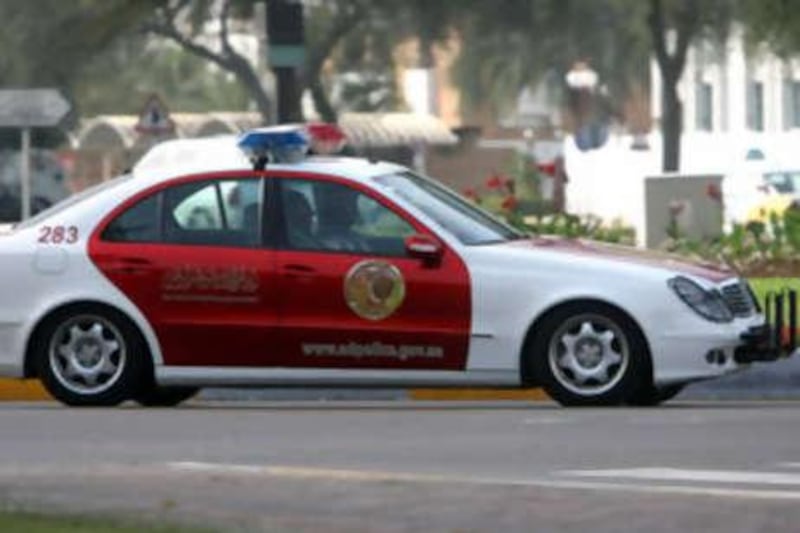Police have been tightening their ties to Interpol and frequently use the global police organisation's public warrants as a tool to hunt international fugitives. The UAE has 188 outstanding "red notices" on Interpol's website — more than any other state in the region and the fifth highest number of any country in the world. In contrast, the UK has issued seven, Saudi Arabia one, Oman seven and Rwanda, which is searching for perpetrators of the 1994 genocide, has 77.
A red notice means Interpol will assist local officers in apprehending a suspect with a view to extradition. The UAE has the highest number of public warrants after the United States, which has 378, Belarus, 373, India, 334, and Albania, 267. Rachael Billington, a spokesman for Interpol, said the heavy use of public warrants reflected the UAE's confidence in the organisation. "The fact that the UAE has so many notices is an indication of their commitment to Interpol."
Further strengthening the relationship between the Emirates and Interpol is Mubarak al Khaili, the organisation's assistant director for the Middle East and North Africa, and a former Abu Dhabi police officer from Al Ain. At 30, he is the youngest assistant director at Interpol. Dubai Police have collaborated with Interpol on two major jewel thefts in the last year. One investigation led to police uncovering an international gang of thieves known as the Pink Panthers.
Mr Khaili says the other robbery exemplifies why the UAE, and all Arab nations, should build a strong relationship with Interpol. In March 2006, two masked thieves rode a motorcycle into jewellery shops at Wafi City and BurJuman malls, stealing jewellery worth Dh10 million (US$2.7 million) and escaping on a flight to Belgrade. Mr Khaili said the UAE had never witnessed a crime like it. Three weeks ago Interpol arranged to have Andrea Zevatovic, the alleged mastermind, extradited from Germany to face trial in Dubai. "Without Interpol, these guys would remain unidentified," Mr Khaili said.
With a large expatriate community and an abundance of wealth, the UAE has become a profitable target for international criminals, he said. This is underlined by the mass of "red notices" the country has issued, 160 of which are for fraud. "The majority of red notices are concerning financial crime. That means in the UAE, we don't have serious crime," Mr Khaili said. He said the public warrants have proved "very, very, very effective".
"We have had a lot of cases already of people being arrested and extradited." As well as issuing warrants, he said local police collaborated with Interpol to track down fugitives wanted by other nations. "The UAE doesn't want anybody wanted in other countries to stay in our country." Mr Khaili said access to international databases was the most valuable benefit of membership of Interpol. They contain everything from details on lost travel documents to DNA.
It is through DNA evidence provided by Dubai Police that Interpol was able to link a separate robbery at Wafi City mall in April 2007 to yet another international ring of thieves. The fugitives, also wanted by Liechtenstein, drove two stolen Audis into the mall, threatened staff with fake guns and escaped with Dh14 million in jewellery. One of the culprits was sentenced to 10 years in prison by a Dubai court on June 8. The other suspects are among the 188 fugitives wanted by the UAE on Interpol's website.
Fifty-seven of the warrants are for Indians, 19 are for Pakistanis and 15 for Egyptians. Four women are among the wanted. Only one Emirati is on the public list: Jabelas Keeshor Burjraj, 44, who was born in India but is now wanted for fraud by the UAE. Two of the men on the list have been recently in the news. Santosh Madhavan, an Indian astrologer and guru wanted by police for defrauding a Dubai woman out of Dh400,000, was arrested on May 13. Although Madhavan was the subject of a red notice, Maj Gen Khamis Mattar al Mazeina, the deputy commandant general of Dubai Police, said the emirate would not move to extradite him as he was an Indian wanted for crimes there.
"But we will be seeking compensation and damages for the time and money we have put into capturing this man, as well as compensation for the victim," he said. Emad Ayoub, a former Dubai property developer accused of fleeing the country after taking Dh36m of investor's money, is also on the list. He is believed to be living in Northamptonshire, UK, and could be the first person formally extradited to the UAE from Britain if arrested.
@Email:jmather@thenational.ae






